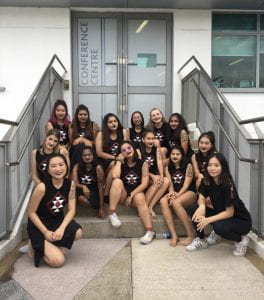How does this poem correspond to your own understanding of Dean Young? What is the author’s attitude towards Dean Young?
My first reaction to this poem was confusion, which is my reaction to most Dean Young poems. When I read a Dean Young poem, I’m truly clueless as to what is going on. I get a glimpse at multiple ideas and subjects and don’t know how to connect these thoughts to get a sense of understanding for his poems, yet I enjoyed Undertow. Young’s lines are relatable separately but when put together confuse me. I particularly enjoy and resonate with this line about the ocean –
what it throws away it dashes down
then wants back, yanks back.
Similarly my first reaction of confusion to this Hoagland poem corresponds to my reactions to Dean Young. After multiple reading and understanding lines separately, I finally gather an opinion of sorts or more like my thoughts about what is going on. A couple of lines about childhood anecdotes and memories of hospital treatments, lines about change in personality to lines about drinking wine a certain way show me that Hoagland and Young had a close relationship with each other. I feel this was a tribute of sorts to a close friend about their relationship and the barriers they crossed together as comrades.
When Dean Young Talks About Wine – Tony Hoagland
The worm thrashes when it enters the tequila.
The grape cries out in the wine vat crusher.
But when Dean Young talks about wine, his voice is strangely calm.
Yet it seems that wine is rarely mentioned.
He says, Great first chapter but no plot.
He says, Long runway, short flight.
He says, This one never had a secret.
He says, You can’t wear stripes with that.
He squints as if recalling his childhood in France.
He purses his lips and shakes his head at the glass.
Eight-four was a naughty year, he says,
and for a second I worry that California has turned him
into a sushi-eater in a cravat.
Then he says,
This one makes clear the difference
between a thoughtless remark
and an unwarranted intrusion.
Then he says, In this one the pacific last light of afternoon
stains the wings of the seagull pink
at the very edge of the postcard.
But where is the Cabernet of rent checks and asthma medication?
Where is the Burgundy of orthopedic shoes?
Where is the Chablis of skinned knees and jelly sandwiches?
with the aftertaste of cruel Little League coaches?
and the undertone of rusty stationwagon?
His mouth is purple as if from his own ventricle
he had drunk.
He sways like a fishing rod.
When a beast is hurt it roars in incomprehension.
When a bird is hurt it huddles in its nest.
But when a man is hurt,
he makes himself an expert.
Then he stands there with a glass in his hand
staring into nothing
as if he were forming an opinion.

